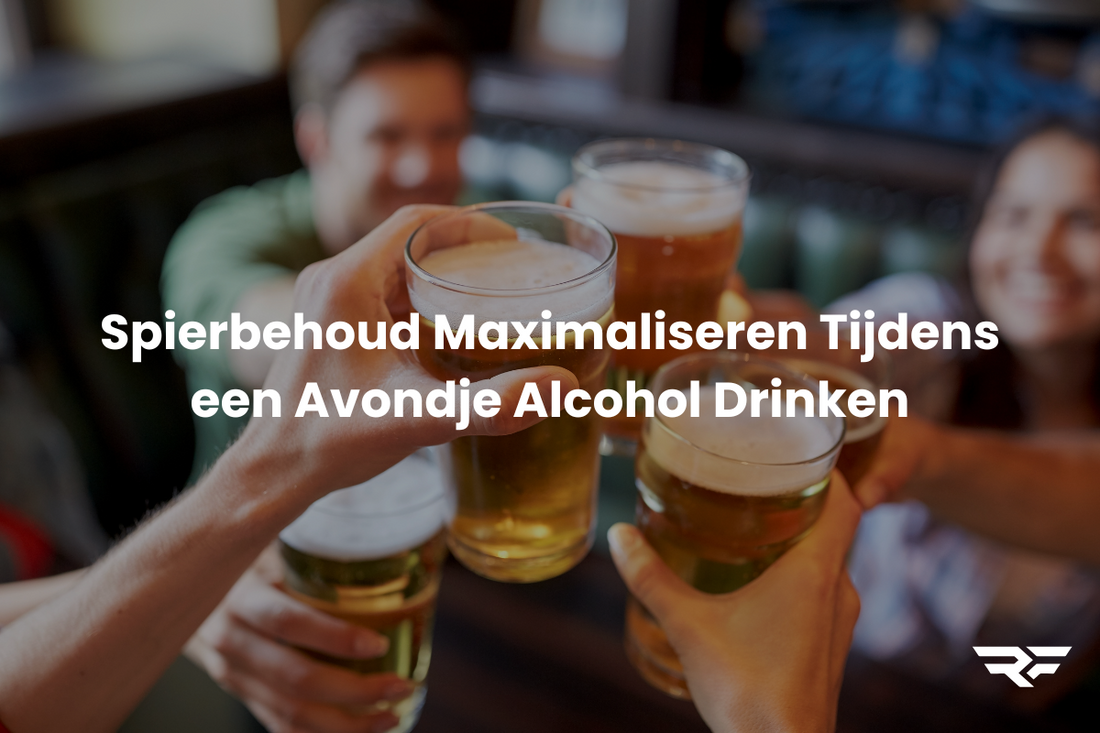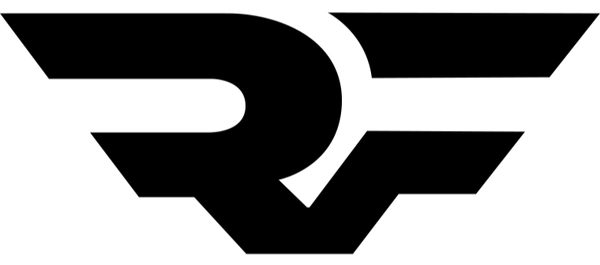
Maximizing Muscle Retention During a Night of Drinking Alcohol
RaveFit, Reading time: 4 minutesShare
Introduction
Alcohol and fitness may not seem like the best combination, but that doesn’t mean you have to sacrifice your social life to achieve your fitness goals. There are ways to minimize the impact a night of drinking has on your muscles. In this blog, we’ll discuss how alcohol affects muscle recovery and building, and share practical tips for minimizing muscle loss while enjoying a drink.
1. Alcohol and Muscle Building – Can They Go Together?
Alcohol can negatively impact your muscle building and recovery by disrupting processes like protein synthesis and slowing recovery. Research shows that alcohol consumption immediately after exercise can reduce muscle growth by as much as 37%, even if you are getting enough protein. (Source: Plos Journals, 2014 ). However, it is possible to make smart choices that limit damage and prevent muscle loss.
In an earlier blog we zoomed in on the effects of alcohol on muscle building and compared it with other substances such as XTC. This showed that alcohol, despite its social acceptance, can have a significantly more negative effect on your muscles than is often thought.
However, it is possible to make smart choices that limit damage and prevent muscle loss. Read on to discover how to strike a balance between enjoying a night out and protecting your fitness results.
2. Effects of Alcohol on Muscle Building and Recovery
To understand how to minimize the impact of alcohol on your muscles, it’s important to first understand how alcohol affects your muscle building and recovery. Alcohol affects several biological processes that are essential for muscle growth and regeneration. By recognizing these effects, you can be better prepared to make smart choices and minimize damage. Below, we’ll discuss the main ways alcohol can negatively impact your muscles.
1. Disrupted Protein Synthesis
Protein synthesis is essential for muscle growth. Alcohol inhibits this process, making your body less efficient at repairing and building muscle tissue. This effect is more pronounced with excessive drinking. (Source: Plos Journals, 2014 )
2. Hormone balance
Alcohol lowers testosterone levels, an important hormone for muscle growth, while it increases cortisol, which stimulates catabolic (muscle-breaking) processes.
3. Dehydration and Recovery
Alcohol acts as a diuretic, which leads to dehydration. This hinders the recovery of muscle tissue and can cause muscle cramps.
4. Energy balance
Alcohol contains "empty" calories (7 kcal per gram) that provide no nutritional value but still contribute to your total calorie intake. This can throw your macros out of balance.
3. Practical Tips to Minimize Muscle Loss
While avoiding alcohol is the best choice for muscle preservation, there are strategies to limit the damage:
1. Eat a protein-rich meal before drinking
Eating a meal of high-quality protein (e.g. chicken, tofu, or cottage cheese) beforehand gives your body the building blocks it needs to maintain muscle. Pair this with complex carbohydrates, such as brown rice or sweet potato, to keep your blood sugar levels stable and provide sustained energy.
2. Stay hydrated and replenish electrolytes
Hydration is essential to counteract the dehydrating effects of alcohol. Drink a glass of water between each alcoholic drink. Add electrolytes, such as sodium, potassium and magnesium, to restore the mineral balance in your body and prevent muscle cramps.
Tip: Use sports drinks or electrolyte tablets that are specifically formulated to optimize hydration. Want to learn more about the importance of electrolytes? Read our blog on electrolytes where we delve deeper into their role in recovery and performance.
3. Choose light alcoholic drinks with fewer calories
Not all alcoholic beverages are created equal when it comes to calories. By choosing wisely, you can limit the impact on your energy balance. Here’s a look at popular choices:
|
Drink |
Portion (ml) |
Calories per glass |
Alcohol (grams) |
|
Dry white wine |
150 ml |
105 kcal |
14.4 g |
|
Red wine |
150 ml |
125 kcal |
16.8 g |
|
Beer (5%) |
330 ml |
140 kcal |
13.2 g |
|
Beer (3%) |
330 ml |
95 kcal |
7.9 |
|
Vodka Red Bull |
200 ml |
190 kcal |
16 g |
|
Bacardi Cola |
200 ml |
215 kcal |
16 g |
|
Cocktail average |
250 ml |
250-300 kcal |
15-20 g |
|
Vodka Spa Red |
200 ml |
110 kcal |
16 g |
|
Gin and tonic |
200 ml |
135 kcal |
16 g |
Tips for healthier choices
- Go for light options: Opt for beer or wine instead of sugary cocktails or mixed drinks.
- Choose simple combinations: A drink such as vodka with sparkling water contains fewer calories and no added sugars.
- Limit portions: Stick to one drink per hour to limit both calories and alcohol consumption.
4. Limit your consumption (if possible)
Try to limit your alcohol intake to 1-2 drinks. Not only is this safer for your health, but it also helps to minimize the negative effects on your muscles and recovery. According to the World Health Organization (WHO), this is a safe limit that limits the impact on your body.
5. Don't exercise right before a night of drinking
A heavy training session on the day you drink will make your muscles more susceptible to the negative effects of alcohol. Instead, choose a rest day or a light workout. This will minimize muscle breakdown and improve your recovery.
6. Take antioxidants the day after
Foods rich in antioxidants can reduce oxidative stress from alcohol consumption. Think berries, spinach, nuts, and green tea. For example, add a blueberry and spinach smoothie to your breakfast to support muscle regeneration.
Closing: A Balanced Approach
It is important to realize that consistency is the key to fitness success. One night of drinking will not ruin your results as long as it does not become a habit. By making smart choices, you can enjoy social occasions without sabotaging your muscle building.
Want to know more? Leave your questions in the comments below, or discover our other blogs for more tips and advice! Also follow us on social media for the latest updates and advice.
